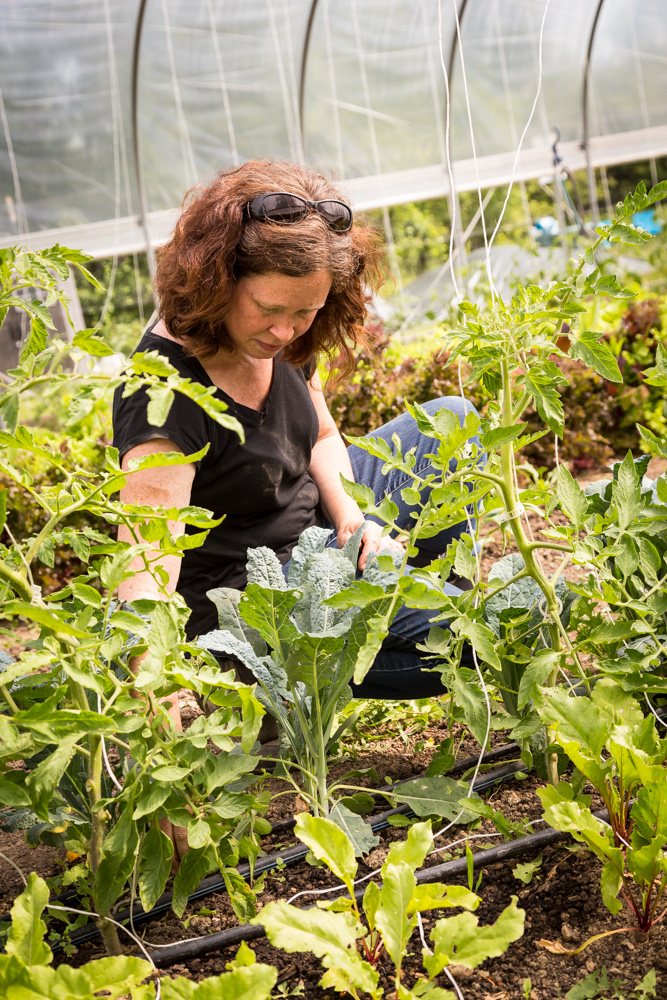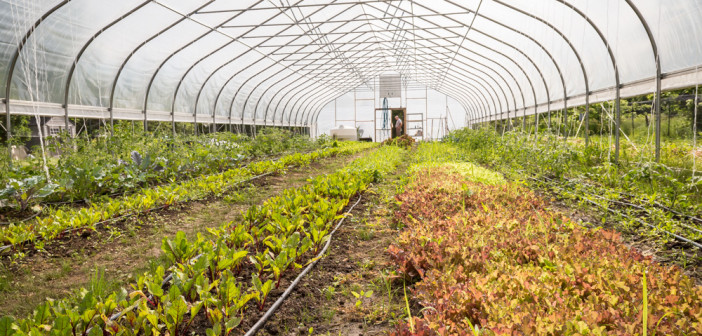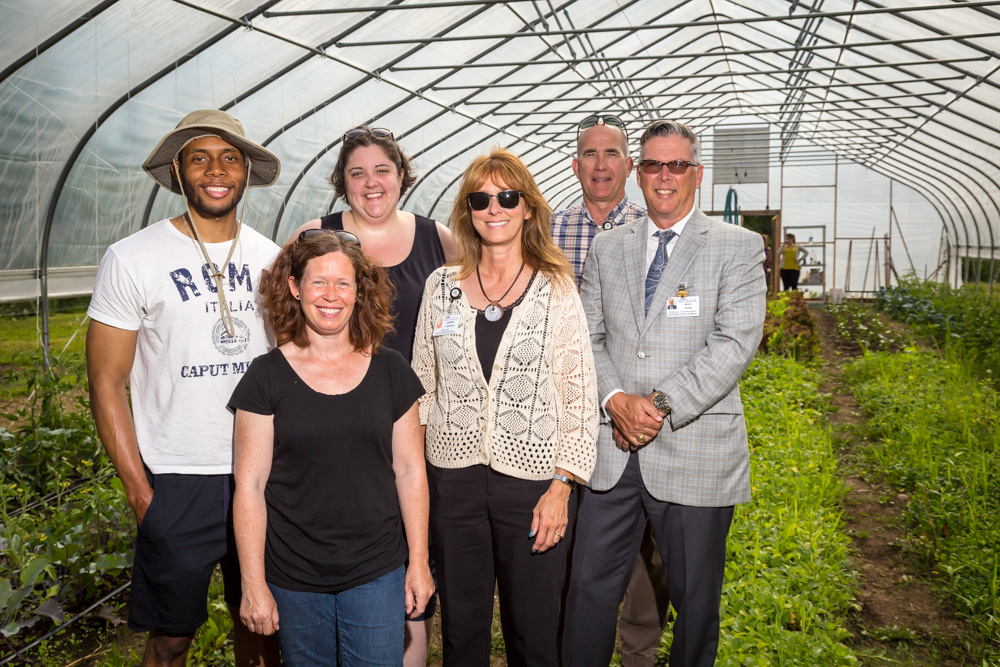In 2007, Genesys Health System revised their strategic plan, broadening the definition of health care to include community wellness and access to fresh, locally-grown food. “We started to look at how we could utilize our 500 acres to benefit the community from an economic and wellness perspective,” explains Nick Evans, Vice President of Business Development for Ascension Mid-Michigan, administrative lead on the donation of three acres of land for use as a Farm Development Center on the Genesys Health Park Campus. “We are not an island here – anyone in the community we serve can come here and find something to participate in.”
Through a partnership with Michigan Food & Farming System (MIFFS), Michigan State University Extension (MSUE), MSU Center for Regional Food Systems (CRFS) and the Community Foundation of Greater Flint (CFGF), the three acres were converted into a sustainable community farm to support wellness and address the economic and agricultural shifts this country will see in the near future.
According to MIFFS, the Women-in-Agriculture (WIA) Farm Development Center at Genesys is a way for local growers to connect with each other, offer training and resources to increase profitability, and provide emotional support. “We are heading into a pretty significant labor turnover with farmers in the U.S.,” informs Jennifer Silveri, Director of Field Operations for MIFFS. “Most of our farmers are over the age of 58, so by 2019, there will be about 100 million acres of land changing hands and about 20 percent of it doesn’t have a succession plan, which means there aren’t family members to take over.” This means that the face of the American farmer is changing and there is a lot of education needed including not only growing techniques, Silveri explains, “but also learning the regulations that they have to know with farming, which are constantly changing and not written to be understood by people running smaller farms.”
Apart from growing food, Silveri says the training and monthly network meetings are the most important thing they do at the Farm Development Center. They facilitate training on anything from soil health, compost management, business management, high-tunnel greenhouse training, and on-farm food safety regulations. The program is tailored to the specific needs of the group. Whatever they are struggling with, the program will provide the necessary training along with community support.
 Cultivating Land & Green Connections
Cultivating Land & Green Connections
Silveri has been with the project since it began, and has been an essential part of developing the land from untouched overgrowth into a functioning, successful farm. The process is not as simple as planting. The first year was spent laboriously taming the wild land. She, along with partners like the Evergreen group, used brush hogs to clear out large plants before tilling the ground to get the vegetation under control. The next step was to plant cover crops, which improve the soil and are tilled back into the ground after they grow, acting as organic matter or “green fertilizer.”
The progress continued last year, when Dana Voorheis came on as the WIA Farm Development Center Farm Manager and worked with Silveri on the infrastructure builds. The high-tunnel greenhouse was completed, fencing and a shed were built and last fall, they had their first growing season. For Voorheis, the farm functions as an important part of the community. “It’s important for everybody to have fresh locally-sourced food, and a space where people can come and learn hands-on,” he shares. Another benefit to the WIA Farm Development Center, she adds, is that beginning farmers may not have a lot of time, money or land, or may be nervous about taking on such a large project. “Here, there isn’t a lot of risk,” she states. “You can come and learn and find out what you’re really interested in. It is a very important resource.”
The WIA farm uses organic techniques. “We are not organic certified, but we follow practices that minimize use of pesticides whenever possible,” Silveri explains. When they do use pesticides, they use those approved by the Organic Materials Review Institute. And they use no synthetic fertilizers, but rely on composting. The farm is currently growing mixed vegetables, including a lot of salad greens, tomatoes, cucumbers, zucchini, some root crops and herbs, as well as strawberries. Most of the food goes into Flint or other limited resource areas around the county. They sell crops to the Farmers Market at Genesys, Genesee Intermediate School District, they have a farm stand, sell to The Local Grocer in Flint and other area farmers markets. They are also currently making connections to sell produce to corner stores in Flint as part of the Healthy Corner Store Initiative, as well as expanding the program to include disabled veterans.
Besides growing healthy, fresh and local food for the community, the WIA Farm Development Center is also home to a worm farm that diverts about 300 lbs. of food waste every week, and this number will continue to grow. The vermicomposting system (composting with worms) is home to about 200,000 worms that are fed food waste from the hospital. Kurt Batschke, Greenhouse Manager at Genesys and the facility liaison between the Women in Agriculture farm and Genesys, explains: “TouchPoint, Genesys food service provider, is cooperating with us in diverting pre-consumer food scraps – in particular, scraps of watermelon, musk melon and pineapple, which the worms just love as a food source – and the goal is to reach about 1,000 lbs. weekly as the worms reach their maximum consumption.” This food waste would have ended up in the landfills, and instead, is creating compost to improve the soil and grow better vegetables and fruit for the community. Kurt calls this connection, “a beautiful, natural relationship” that he hopes to see expanded further at Genesys as well as into the community.
Genesys Health System hopes that this project becomes an example of sustainable green connections for a healthier community. According to Nick Evans, the goal is to “build it into the community, so that rather than doing a project here or there because it’s interesting, it becomes real business, and hopefully for Genesee County, represents the beginning of a sustainable agricultural model.”
Photography by Eric Dutro









